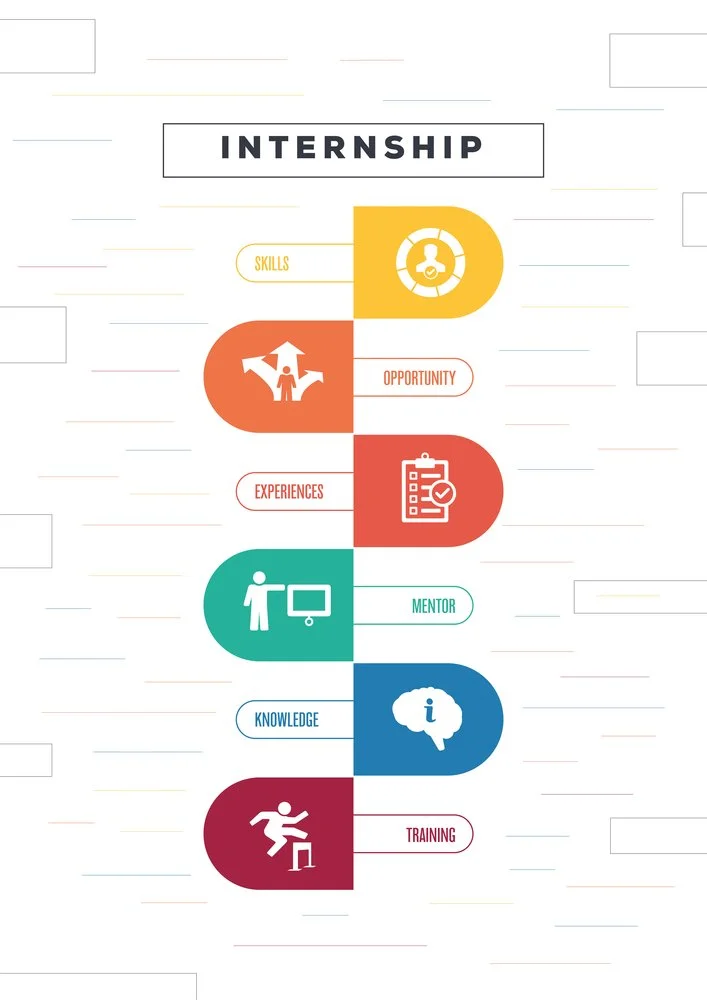Agency Internship Playbook
Summer is approaching, and with it comes a wave of college students eager to join our industry. The extra hands around the office are helpful to backfill your folks who are taking some much-needed time off during the summer. It's always great to have an intern who can focus on the tasks that no else has time for or wants to do! That’s cap! No one benefits when interns are performing meaningless tasks—not your agency or the interns themselves. This generation of interns crave real-world experience where they can learn new skills, validate their interests, and establish their professional network. Unlike previous generations, simply being in the building does not check all the boxes.
Whether you are welcoming your first interns or looking to evolve your current program, the following playbook provides a framework for success.
1. FOCUS ON OUTCOMES
Begin by identifying meaningful outcomes for your internship program. Here are a few ideas to get you started.
Identify ideal future employees. Internships bring a pipeline of future employees to your doorstep. During their internship, you can assess whether they are a cultural fit for your agency.
Accomplish project goals. Interns help increase your bandwidth to meet project goals and deadlines.
Increase diversity. Interns bring diverse backgrounds and perspectives to your agency, enriching your team’s skills and creativity.
Provide management experience for younger staff. Providing opportunities for younger staff to manage interns can help them develop valuable leadership skills, while contributing to the overall success of the internship program.
2. DEVELOP RELATIONSHIPS WITH LOCAL SCHOOLS
Establishing relationships with local schools and professors can help you attract top talent for your internship program. Offer to guest speak in relevant classrooms, and give professors the opportunity to nominate one or two students to intern at your agency. This creates a mutually beneficial relationship that motivates students with real-world experience and helps your agency identify promising candidates.
3. PROVIDE AN ORIENTATION
On the first day, take a moment to clarify the overall purpose of the internship program. Introduce interns to fellow employees, and discuss the agency's vision and mission. Be clear about the outcomes you expect from their time with your agency, and provide guidelines and expectations for their conduct and performance.
4. ASSIGN A BUDDY
Assigning a "buddy" to new interns can help them integrate into your agency's culture and work processes. Buddies should be closer in age to the interns, and provide guidance and support as needed.
5. ASSIGN TO CLIENT TEAM(S)
Assigning interns to client teams can help them gain real-world experience and contribute to the agency's success. You won't put them in a position to fail, but they should be given meaningful work and project-specific responsibilities that challenge and develop their skills.
6. PROMOTE INTERN EXPERIENCE
Periodically promote the work of your interns to the rest of your agency. Promoting the work of interns has three benefits: (1) Keeps your agency honest about the type of experience the intern is receiving; (2) Reminds agency staff to incorporate interns into current work streams; and (3) Signals to the intern their work is valued by management and fellow employees.
7. DEVELOP A FARM-SYSTEM
Look at interns the way sports teams look at their developmental leagues. With an internship program, you are trying to spot talent to add to your team. Internships are a great opportunity to test potential entry-level employees. Keep in touch with the good interns after they've returned to school or taken another job. Staying in touch allows you to quickly connect if you have an opportunity that is a good fit in the future. Once hired at your company, these individuals should not be subject to the typical probationary period of new employees—they’ve already logged substantial time with your agency.
8. PROVIDE FEEDBACK
Conduct mid-term evaluations to provide and receive feedback on the internship experience. Additionally, conduct exit interviews with interns to evaluate their experience and incorporate their feedback to improve the quality of your internship program.
9. PROVIDE CROSS-FUNCTIONAL EXPERIENCE
Offer interns the opportunity to interact with different parts of the business. Give them insight into how the business works by allowing them to sit in on leadership team meetings. If they are in account services, give them an opportunity to meet with the creative team and vice-versa.
KEY TAKEAWAY
We've all had our fair share of bad internship experiences. Some of us have failed interns in the past—not due to negligence, but because we did not have the right structure in place. My hope is that this playbook will provide a framework for success for your agency and future interns alike.

